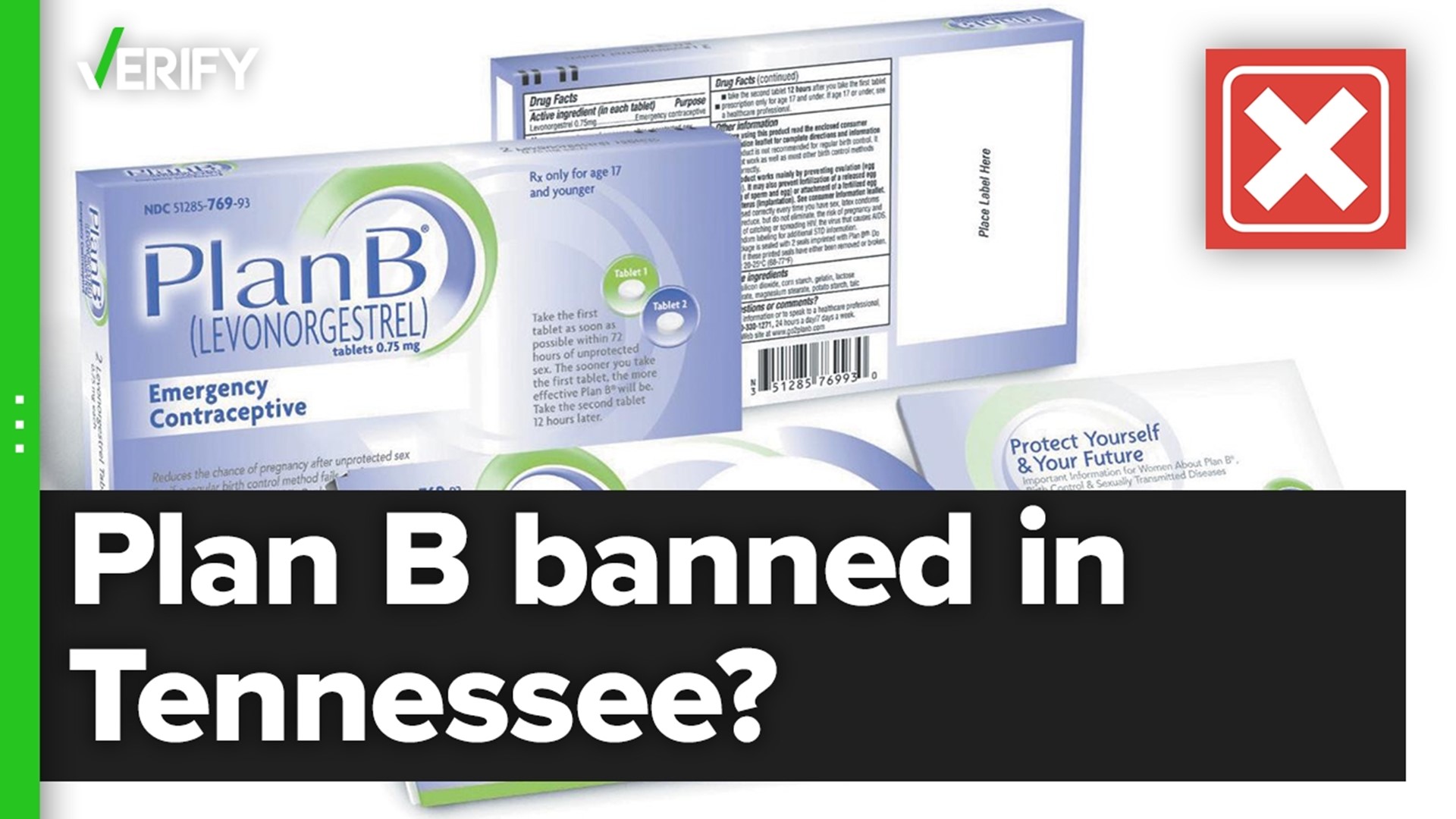Update June 24, 2022: The Supreme Court on June 24 overturned Roe v. Wade, which federally protected the right to an abortion. This story has been updated to reflect the final Supreme Court decision.
On June 24, the U.S. Supreme Court overturned the 1973 Roe v. Wade case that made abortion legal nationwide. States can now pass their own abortion laws to either restrict or protect the right to abortions.
In May, a leaked draft opinion published by POLITICO suggested the court would overturn Roe v. Wade. When the draft was leaked, there was a flurry of claims online about measures states might take to restrict reproductive rights beyond abortion itself.
One claim said Tennessee already passed a law that banned emergency contraception like Plan B.
Pam Keith, a lawyer and former congressional candidate in Florida, tweeted, “Tennessee just banned Plan B and made it a crime punishable by a $50,000 fine to order it.” The post got tens of thousands of likes and retweets in two days, before Keith deleted it.
THE QUESTION
Did Tennessee ban emergency contraception, like Plan B?
THE SOURCES
THE ANSWER
No, Tennessee did not ban emergency contraception like Plan B.
WHAT WE FOUND
Plan B is an emergency contraceptive, not an abortion pill. That means it prevents a pregnancy from happening in the first place; it doesn’t end an existing one.
Plan B is one common brand name of the drug levonorgestrel. The National Library of Medicine (NLM) says “it works by preventing the release of an egg from the ovary or preventing fertilization of the egg by sperm. It also may work by changing the lining of the uterus to prevent development of a pregnancy.”
The most common abortion pill is mifepristone, formerly called RU-486. The NLM says “it works by blocking the activity of progesterone, a substance your body makes to help continue pregnancy.”
On May 5, Tennessee Gov. Bill Lee signed HB 2416. The law does not mention emergency contraception at all, only abortion pills.
It requires abortion pills be prescribed by a doctor in person, and prohibits them from being provided by mail or delivery. It does not ban them outright.
Those restrictions are not a change from the status quo in Tennessee. The state already had those requirements on the books. The main change made by the new law is to stiffen the penalty for providers who violate it.
In the past, a doctor who provided a patient with an abortion pill without an in-person visit, or a pharmacist who illegally shipped pills to a patient, would have committed a class B misdemeanor in Tennessee. HB 2416 elevates that to a class E felony, which can come with a fine of up to $50,000.
The law does not penalize a person for taking an abortion pill. It states that “a criminal penalty shall not be assessed against a patient upon whom a chemical abortion is attempted or performed.”
Keith, the author of the tweet, told CNN she mistakenly misinterpreted the law and deleted her post, though not before it had spread widely.

